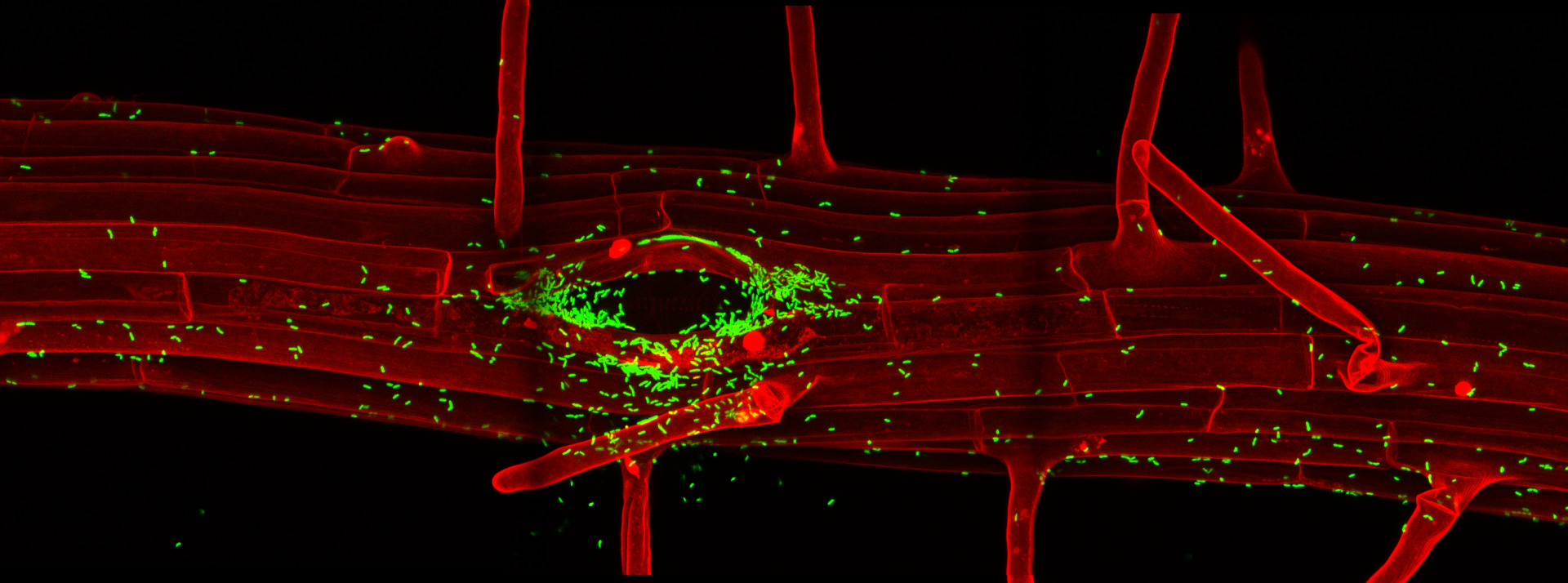Niko Geldner, Full Professor, e-mail
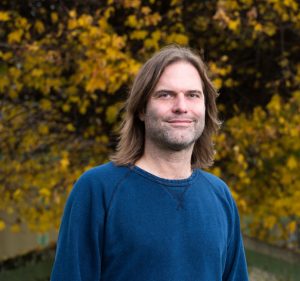
Niko Geldner studied biology at the Universities of Mainz, Bordeaux and Tübingen. In Tübingen, he did his diploma thesis (1998) and PhD thesis (1998-2003) in the lab of Gerd Juergens, working on the role of GNOM in Arabidopsis embryogenesis and the polar localisation of the PIN1 auxin efflux carrier. He left Tübingen in 2004 to do a Postdoc as an EMBO and HFSP fellow at the Salk Insitute in La Jolla, California, in the lab of Joanne Chory. There, he worked on the endosomal trafficking of the plant steroid receptor kinase BRI1 and developed the WAVE set of sub-cellular compartment markers. In summer 2007, he started as an Assistant Professor at the University of Lausanne, where he was promoted to Associate Professor in 2012 and Full Professor in 2018. He was awarded starting and consolidator grants from the European Research Council (ERC) in 2007 and 2013. In 2021, he received an ERC Advanced grant to work on the elucidation of root-bacteria interaction at high spatial resolution. Niko Geldner is an EMBO member since 2017 and was elected AAAS Fellow in 2021.
Valérie Dénervaud Tendon, Lab manager, email
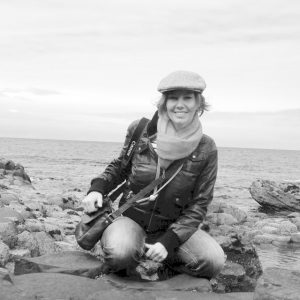
Valérie Dénervaud Tendon joined our lab in October 2007 and enjoyed shopping in order to set up the lab. She began her professional life in Nestlé Research Center where she obtained her professional diploma. She continue her studies at the Engineering School of Valais, in Sion, in the Food technology and Biotechnology department. She has been then working at University of Lausanne, in the lab of Prof. Dieter Haas lab, where her research was focused on the virulence of Pseudomonas aeruginosa and the role of the quorum sensing regulatory network. She also enjoyed Irish life style while working in University College of Cork, Ireland, in the lab of Fergal O’Gara.
Anaxi Houbaert, Post-doc, email

Anaxi is from Belgium, the country of beer, fries, waffles and chocolate (although Swiss people would argue with the latter). Having studied at the Université Libre de Bruxelles (ULB) in which he obtained his master’s degree in biotechnology and biochemistry, he moved to the medieval city of Ghent to carry out his PhD in plant biotechnology in the group of Prof. Eugenia Russinova at the Flemish Institute for Biotechnology (VIB). His research focused on understanding how signalling integration, specificity and regulation of GSK3-like kinases is achieved in plants using Arabidopsis thaliana as a model species. The findings presented in his thesis shed light on the molecular mechanisms driving asymmetric cell division and differentiation during leaf epidermal development. Anaxi specialized in life cell imaging, allowing him to study the dynamic process of cell division driven by protein phosphorylation and polarization. Passionate about the fundamental aspects of plant development, he joined the Geldner group as a post-doctoral fellow in September of 2019, aiming to further characterize the molecular network required to establish the selective barrier in the root endodermis called the Casparian Strip. In order to achieve this, he will rely on recently developed state of the art CRISPR activation technology combined with advanced live-cell imaging techniques.
Irene Guzmán-Benito, Postdoc, email
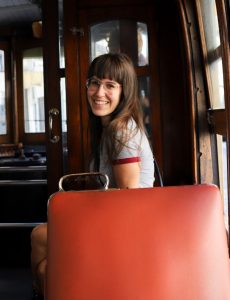
Born and raised in Spain, Irene studied biology at the Complutense University of Madrid (UCM) and got a double specialization in genetics and biotechnology. Then, she joined the group of Dr. César Llave of Stress and Gene Regulation in The Center of Biological Research (CIB) where she earned her Masters and PhD from the Polytechnic University of Madrid (UPM). During her PhD, she investigated the immune repressor BIR1 in Arabidopsis and discovered the contribution of this element of signaling to antiviral defense, its double genic regulation at a transcriptional and post-transcriptional level, and the biological relevance of this severe control. During these years, she also visited the lab of Prof. Andrzej Wierzbicki at the University of Michigan (UM) to learn about epigenetics and study its contribution to the regulation of BIR1 and other elements of defense signaling.
Driven by her curiosity and passion about how plants integrate stimuli and make decisions in a dynamic environment, Irene joined Niko´s team in May 2021 as a postdoctoral fellowship to elucidate signaling specificity and uncover key elements in the receptor network cross-talk within a cell.
Huei-Hsuan Tsai, Postdoc, email
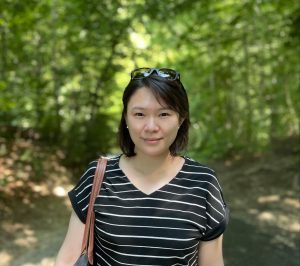
Huei-Hsuan, who goes by the name of Merissa, was born in Taiwan and raised on the tropical island of Bali, Indonesia. She obtained her bachelor’s degree in molecular biotechnology from the Chinese University of Hong Kong. Driven by her interest in plant science, she joined the group of Dr. Wolfgang Schmidt in the Institute of Plant and Microbial Biology, Academia Sinica, Taiwan to pursue her PhD. During her PhD, she investigated a pH-dependent iron deficiency response and elucidated the function of a novel enzyme in the extended phenylpropanoid pathway, referred to as scopoletin-8-hydroxylase, which participates in iron acquisition at elevated pH by mediating the synthesis of the coumarin fraxetin. Her work on root exudates further expanded her curiosity on the role of root exudates in plant-microbe interactions. Merissa joined Niko’s group in September 2021 as a postdoctoral researcher to study the basis of bacterial attraction to roots and investigate the missing link between Casparian strip integrity and rhizobacterial colonization.
Wiem Abidi, Postdoc, email
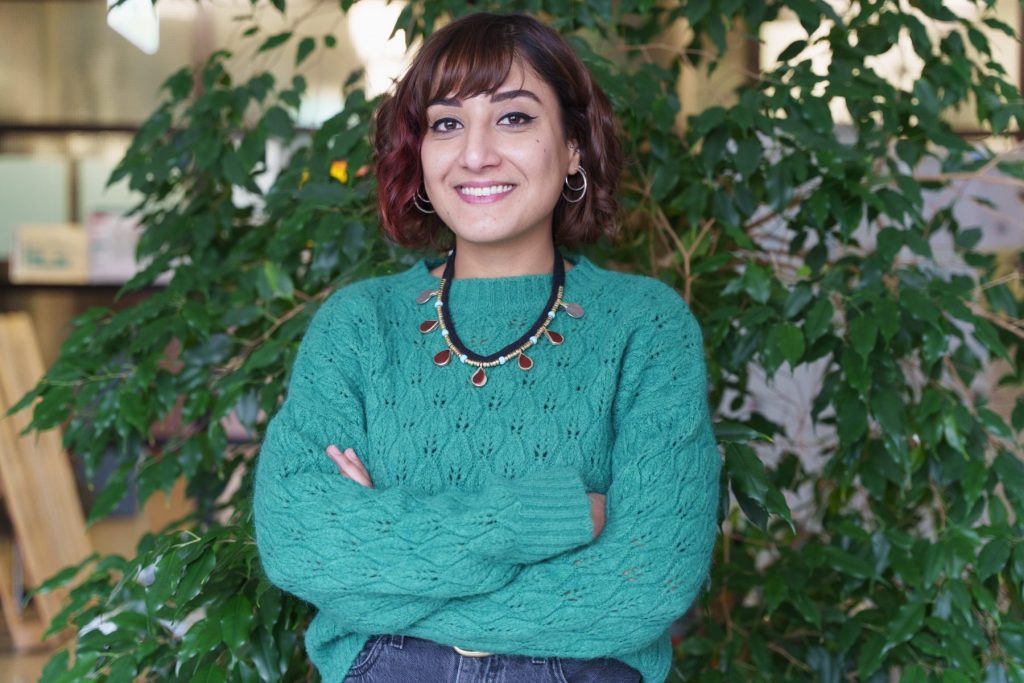
Wiem holds a master’s degree in Biochemistry from the University of Paris Saclay. She first worked as a lab engineer in the French National Centre for Scientific Research (CNRS) of Ile-De-France where she optimized protein expression, purification, and crystallization. Following her ambition to become a scientist, she then decided to pursue a PhD in Microbiology and Biochemistry. In the laboratory of Dr. Petya Violinova Krasteva at the European Institute of Chemistry and Biology (IECB) of Bordeaux, she focused on the structural and functional characterization of the bacterial cellulose synthesis complex that is key to the biofilm formation and environmental persistence of the bacterium. Combining structural and functional methodologies, she revealed the structure of a membrane-embedded multi-protein complex, which allowed her to characterize the structure of subcomplexes and to identify new key components. Wiem joined Prof. Niko Geldner’s group in October 2022 as a postdoctoral researcher and will apply her microbiology knowledge in deciphering bacterial biofilm development processes in the plant roots. She will use Arabidopsis thaliana roots as a model to study the mechanisms of bacterial biofilm formation and dispersal in Gram-positive and Gram-negative bacteria. She will also shed light on how the microbiome shapes plant immunity
Jia Pang, PhD student, email
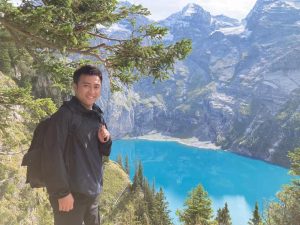
Jia Pang is from Sichuan, China. After obtaining a Bachelor of Bioengineering at Southwest Jiaotong University, he pursued the Master of Science in Shanghai Center for Plant Stress Biology (PSC/CEMPS). Under the supervision of Prof. Jian-Kang Zhu, he participated in the researches on the LEA protein family in Arabidopsis, application of the optimized CRISPR/Cas system and digging out novel molecular chaperone complex in regulating epigenetic silencing of methylated genomic regions. Then, with great interest in live-cell imaging and plant–microbiome interactions, Jia joined Niko’s lab for PhD studies in September 2021. He will mainly focus on the unique bacterial community attracted by roots and follow their action to uncover the story behind the dynamic colonization based on attraction.
Jade Nicolet, PhD student, email
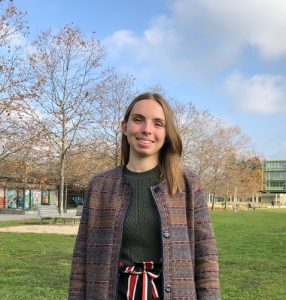
Jade comes from France, she got her bachelor in biology at the University of Lausanne in 2020. She then started a Master in Molecular life science at the University of Lausanne, during which she carried out a small project in the group of Niko Geldner, focused on the characterization of different CRISPR/Cas9 based systems aiming to specifically activate genes in the endodermis. During her master, she also performed a one-year project in the group of Jolanda van Leeuwen, where she investigated the mechanisms of genetic suppression of the essential gene RIB3 in the budding yeast Saccharomyces cerevisiae. With her degree in hand, she came back to the Geldner lab in March 2022 to start her PhD. She will be interested in the role of the putative protease LOTR1 in Casparian strip formation.
Isabelle Flückiger, Lab technician, email
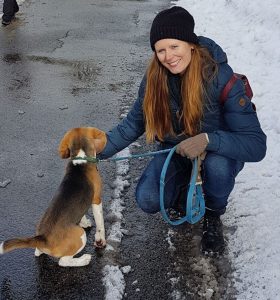
Isabelle is from Switzerland and got her professional diploma at the CMU in Geneva, at the mophology department. She got her first job in a pharmaceutical company, focusing on the development of novel small molecules for neurologic disorders. Then, after a fun sabbatical year travelling and woofing in Australia and New Zealand, she got a position at EPFL, in Pierre Gönczy’s lab for 8 years. There she worked on C.elegans and human cells, helping to understand cell division mechanisms and centriole formation. After another year travelling around the world as a backpacker, Isabelle joined Niko’s lab in June 2019 and enjoys working in plant science.
Etienne Bellani, PhD student, email
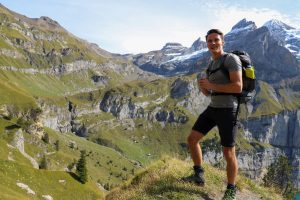
Born and raised in Lausanne (Switzerland), Etienne first worked as electrician before its curiosity to better understand the world surrounding him increased so much that he decided to go back to study. He obtained its Bachelor at University of Lausanne. For his first-step master project, he worked on the ability of insect eggs to trigger systemic acquired resistance against the fungal pathogen Botrytis cinerea in Philippe Reymond’s group. He joined then the Geldner group for his long-term master project, where he focused on determining whether additional members of the CASP protein family could be involved in the Casparian Strip formation. After a small break in Johan Auwerx’s group at EPFL, he realized the unconditional love he had for our group and decided to start his PhD. The PhD will have for main objective to better characterize the molecular mechanisms underlying the deposition of suberin around endodermal cells.
Mathieu Grangé-Guermente, PhD student, email

After completing his undergraduate degree in Plant Genetics at the Université Paul Sabatier in Toulouse, Mathieu joined the lab of Prof. Julian Hibberd at the department of Plant Sciences, University of Cambridge where he worked on the C4 rice project as a research technician. He then joined the group of Dr. Alexander Jones at the Sainsbury Laboratory Cambridge University (SLCU) as a research assistant and lab manager. In the Jones lab, he engineered the next-generation Abscisic Acid Concentration and Uptake Sensor 2 (ABACUS2) in plants, a FRET-based biosensor capable of detecting dynamically abscisic acid levels in plant cells, tissues and whole seedlings. After his research stays in England, Mathieu pursued a Master’s degree in plant biology at the Université Claude Bernard in Lyon. During this time, he was twice able to join the Geldner research group as a part of his Master’s internships. During his first stint as an intern, he participated in a project aimed at unraveling the possible ESB1-CASP1 direct-interaction, using insect cells and ectopic expression of the two proteins. On his second project, he contributed to the study of RABA-GTPases importance to the Casparian strip formation. Now joining as a PhD student as of October 2022, Mathieu is interested in studying the CASP microdomain establishment to the cell wall.
Vikrant Minhas, Postdoc, email
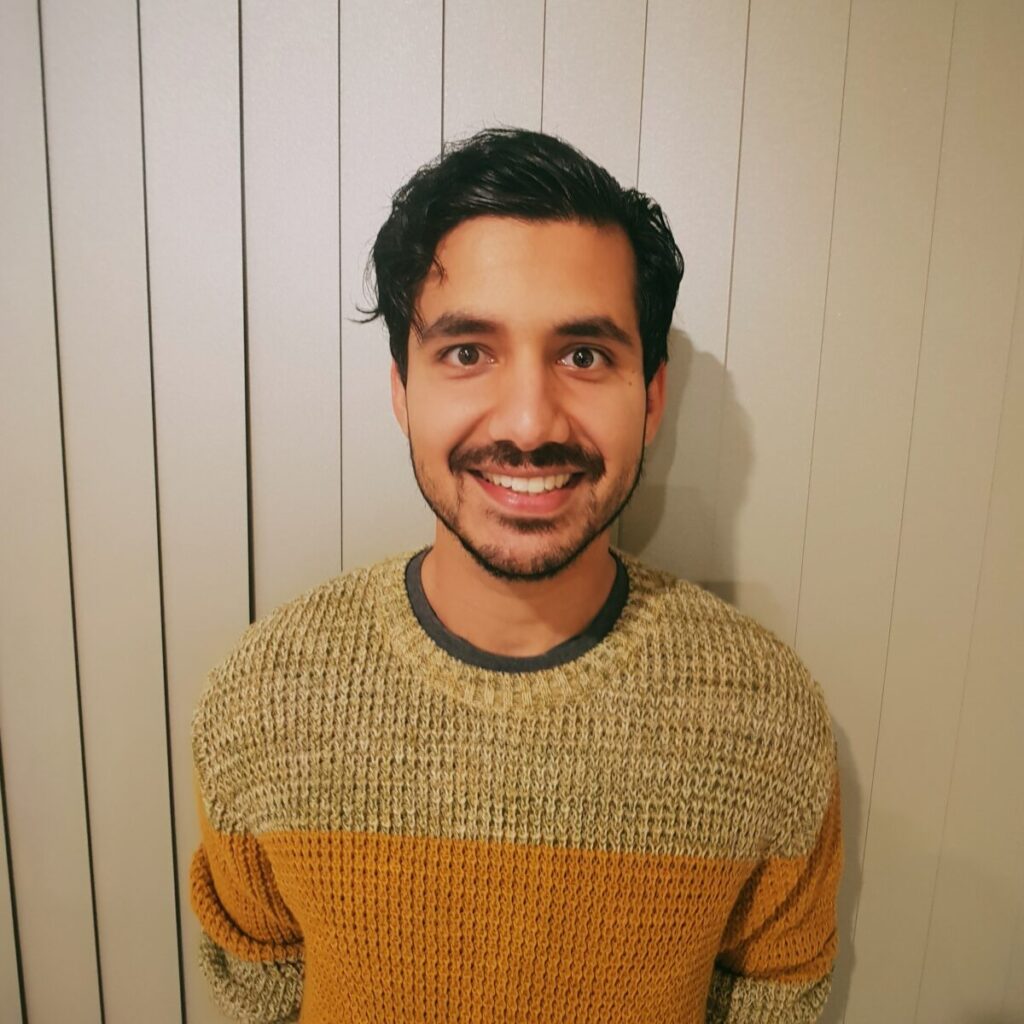
Vikrant was born in India and grew up in Australia, where he completed his PhD at The University of Adelaide in 2020. His PhD examined the dynamics and transcriptomic changes that occur when the human bacterial pathogen Streptococcus pneumoniae infects human lungs. Vikrant moved to UNIL at the end of 2020 for a post-doc in the lab of Prof. Jan-Willem Veening, where he continued his research with Gram-positive bacteria but now utilising cutting edge techniques such as CRISPRi-seq and single cell level sequencing. Starting in the Geldner lab at the end of 2023, Vikrant is now using his microbiological and molecular skills to examine which genes are essential in the bacteria Bacillus subtilis when it colonises Arabidopsis thaliana roots, which facilitate the proceeding symbiotic interactions.
Charles Roussin-Léveillée, Postdoc, email
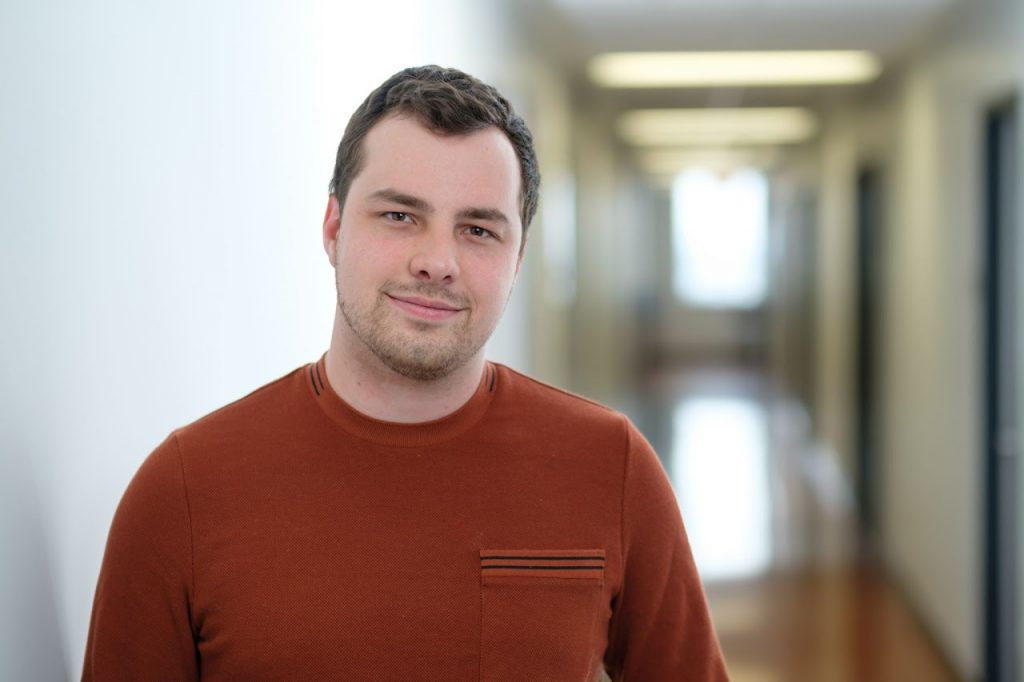
Charles is from Québec, Canada, and consequently, a big fan of maple syrup. He first discovered plant biology research as an undergraduate at the Université de Sherbrooke in the laboratory of Pr. Peter Moffett, after which he joined to pursue a master’s and Ph.D. degree. During his Ph.D., he worked on plant-microbe interactions, specifically studying pathogenic bacteria mechanisms leading to the induction of growth-conducive niche in the leaf extracellular environment. While working on the leaf immune system in the context of pathogenic infections, he quickly realized how little we know about how the below-ground immune system functions. He joined the Geldner group as a post-doctoral fellow in April of 2024, aiming at further characterizing the root immune system. He will focus on developing technologies to enhance our knowledge of how different root cell types communicate locally (in roots) and systemically (with the shoot).
Damien De Bellis, Electron microscopy specialist, email
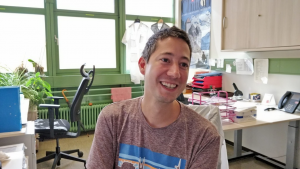
Damien received his master’s degree in biology from the University of Lausanne, Switzerland, in 2014. He then joined the Group of Niko Geldner in 2015 as an electron microscopy specialist. He currently splits his time working for the Geldner’s lab and for the Electron Microscopy Facility (EMF). For the group, Damien is involved in all the projects requiring EM, from sample preparation to image acquisition and data interpretation. He’s enjoying his time helping the other members of the lab in the understanding of their mutants by visualizing the Casparian strip and all the defects visible at the ultra structural level.
